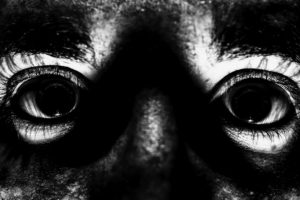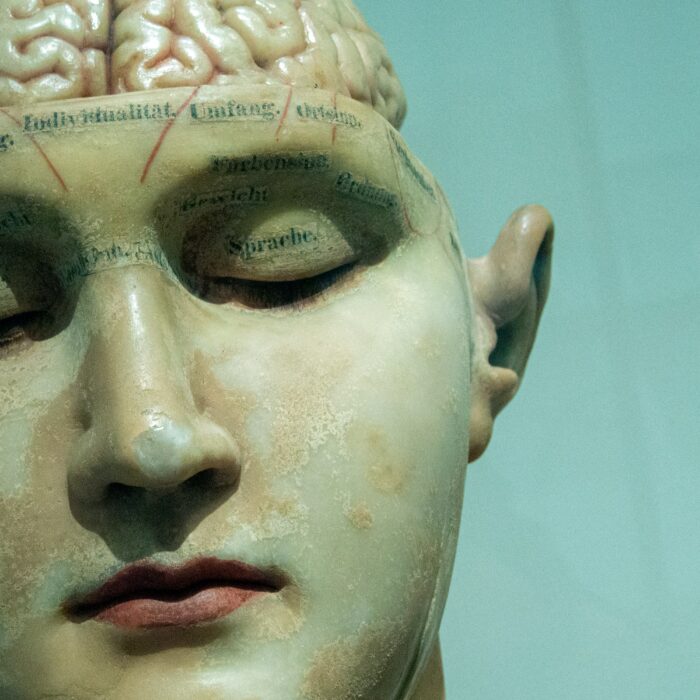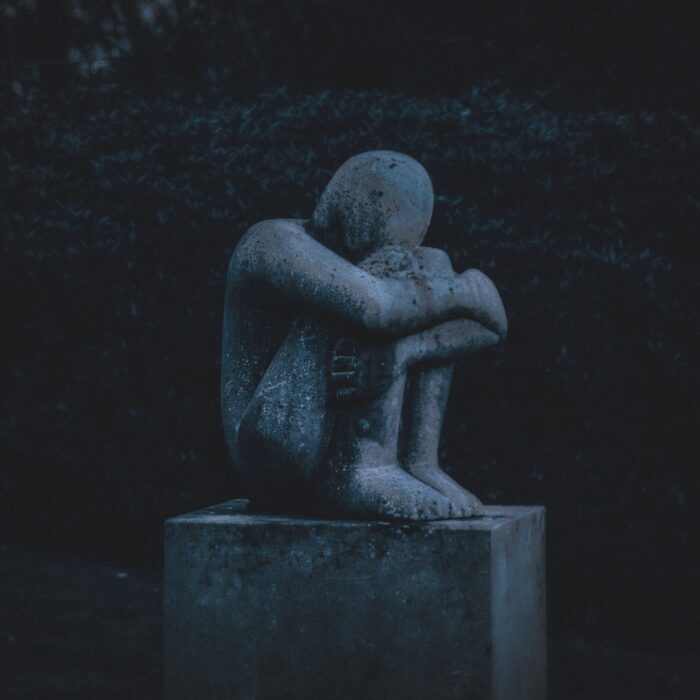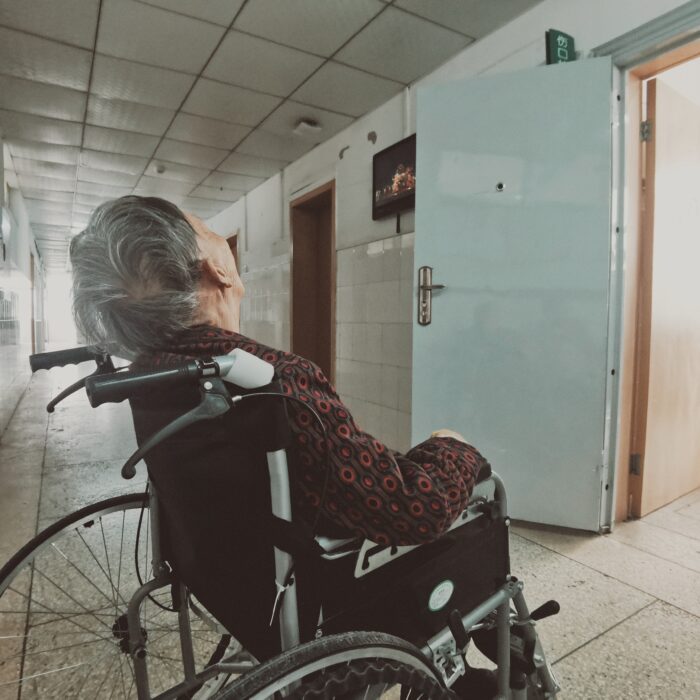You have no items in your cart. Want to get some nice things?
Go shopping
In reply, Mammy chews her little fingernail, what’s left of it, then goes, Sit at the table then Nate, play the puzzle for me, I want a picture.
Nance and me don’t like puzzles, but we like Mammy, so we do it for her. I like make-believe more than toys, but Mammy says I make-believe too much.
So we start looking.
We get pig’s face and cow’s bum, and there’s a bunch of swirly-curly bits what Nance has been collecting. She’s always better than me, ’cos she’s bigger.
The swirly-curly bits, Nance says, are pig’s tail, but I ain’t sure. There’s lots more swirly-curly bits on farms than just pig’s tails. Daddy M once showed me springly bits on the combine and in the cow shed, hanging from hooks in the barn. Everywhere, if you know to look.
Mammy goes, Smile!
And though we don’t want to, we both look up and grin, for Mammy, Nance showing blacky holes where her empty front teeth are.
The flash goes clickety-clack, then Mammy’s lost in the picture, pressing buttons, saying, oh yes, this’ll show them all what fun we have!
But she ain’t looking at us no more and we quickly get lost in the puzzly pieces ’cos there’s something unnice about when Mammy’s doing that.
*
Granny B’s house looks like a spooky man with a pointy hat.
I weren’t so sad when Daddy M went to live there, only he took Dusk with him. We saw Daddy M not so much anyway, on account of his always being on the combine or drinking wobbly-juice with Uncle Cliff, who’s fat with a scraggly beard, and Carl the farmhand.
I miss Dusk. Miss his waggy tail and roughy licks and how he runs in circles when he’s happy. I love him more than Daddy M and Granny B put together. Almost as much as Mammy. He’s my best friend, ’cept maybe Nance.
When Dusk lived with us, Mammy always used to do yells at him. Swears are bad, she says, but it’s OK to call Dusk sunuvabitch ’cos he really is one.
At Granny B’s, Dusk lives outside on a chain, even when it rains. When I ask why he has to stay behind the clinky gate, Granny B’s oldie eyes thin. Her mouth wrinkles like a cat’s bum, her legs wibble.
That pesky dog stinks is why, she goes.
But I like how Dusk smells. When my face is buried in his fuzzy fur, where I kiss him between the eyes. When he licks my face with his roughy tongue it makes me go funny in my tummy, and not in a broken plate way. Granny B makes good ’tatoes with crackly crusts, but she never lets Dusk come inside.
Some nights, I stay at Granny B’s. I sleep under scritchy blankets that block off the winds coming through cracks in the windows. It’s a good view, bigger than the one back home. There, all you get is creaky tree, but here, sludgy yard is all to see. Dusk on his chain, too, and cow field where Daddy M says Carl the farmhand shovels shit, though I never seen it.
Then, one night, there’s yelping. I crawl out the bed, look down in the yard. Daddy M’s there, sloshing a bottle, kicking Dusk.
Dusk on the chain and helpless.
Nance tells me not to look.
I can’t sleep after that. While I’m under the blanket, wind rattling, I says, Nance, will you help me set Dusk free one day?
Nance opens an eye, yawns and goes, Yes, Nate, but go to sleep now…
*
One time, Daddy M took me to the War Place.
Daddy M often takes me out. ’Cos Nance is a girl, she stays behind, watching Granny B do dough, cake and cook. She looks mad as hell when I leave without her, and I’d rather stay and lick the bowl, ’cos I don’t like no tractors, no boxing, no War Place, but Daddy M says they’ll make a man of me.
At the War Place, Daddy M is wet-eyed with wonder, like I never saw. Not even when he burned that dead, cold baby cow on Christmas.
Look at that gun, lad, he says.
I look at my reflection in the glass.
Ain’t that beautiful? Daddy M goes.
I don’t say nothing. Don’t like no guns, but go ooooh ahhh so Daddy M won’t be sad.
He goes: Them’s the guns we used on Jerry in World War Two.
Who Jerry is, don’t know, but World War Two is when this big country started a fight and the whole world had to stop them spreading germs ’cos no one else wanted them. I ask then:
Daddy M, where’d your guns go?
Daddy M gets all shiny-eyed, hot-faced then, like he sometimes does, and I know I did wrong.
There’s a long pause while Daddy M’s eyes go somewhere else, someplace I don’t wanna see. Then he leads me to the big tank, his squeezy hand so tight on my softy fingers it hurts some, and I know to be quiet then.
*
Nance ain’t like so many other girls. She looks after me.
In school, Nance hits the big boys when they point at my holey shoes and tell me they’d steal my lunch money, only I’m too poor to have none. But when she gets them, you should see her go! She ain’t half good. If Daddy M took her boxing, she would, wow, pachow! Pachow! Kill them all!
So Nance gets the boys, but when Miss Carver comes, Nance hides and I’m the one who gets the trouble. I says it weren’t me, but the boys says it was, and Miss Carver rolls her eyes and goes, not this again, and puts me in time out.
Later, in the bath, while Mammy is out the room bleaching sheets, I says, Nance, you knows those big fisty boys at school?
Nance, not looking up, picking her toenail goes, Yeah, what about them?
And I goes, Nance, are they bullies?
Course they’re bullies, Nance says, that’s why I hit them for you.
After a while I go, Nance, is Daddy M a bully?
Nance stops picking her toe then, looks at me. She don’t speak, just stares, then goes, What you think, Nate?
I tell her my head says he is, but my tummy don’t like that being true.
And then, I think meaning to make me feel better but not, Nance says: ’S okay Nate, he ain’t your real Daddy anyway.
*
I never met my real Daddy.
Mammy don’t talk about him. We never even seen pictures. Sometimes I wonder he’s dead. Sometimes maybe he’ll come take me away. When I think that, my eyes go all wet like Daddy M’s at the War Place, with its smell of dusty-metal and glor-ee-us dead.
One time, when Daddy M still lived with us, he was out with Carl and Uncle Cliff, who ain’t a real uncle but was friends with Granny B’s old man before he deaded himself. Sometimes I wonder if anyone’s a real uncle or daddy or granny, or if all of them’s just made up.
Anyway, this night Daddy M was out, I’m in peejays playing in the corner with my train. Daddy M comes back, knocking pots, banging doors.
Mammy put his dinner in the oven but forgot to turn it off. So when he’s down to eat, it’s dried and twisty, like when Nance and me salts slugs and sets them in the sun to die. Not burned, but not delicious neither. Dead dinner.
Daddy M goes: You’ve ruined my meal!
Mammy, shaking, goes, Sorry sorry sorry. She says the oven’s broke.
Standing, Daddy M leans over her, quietly says: You blaming it on the oven?
Mammy shakes her head.
From across the room, Nance looks at me.
I play with my train.
Daddy M calls Mammy an ungrateful word. Then he goes, I take you and your kid in, give you a home, what damn thanks do I get?
Mammy opens her mouth to speak then. Daddy M slaps her face.
I try to stay shush, don’t look.
Then, outta nowhere, a blastedy-bang, smashety-crash. The plate is on the floor. It ain’t a plate now, just lots of sharpy icicles reminding me of when it gets cold and they hang over the door, and when you breathe it makes clouds, and the moon’s face is milk-puddle big.
Only it ain’t like that really, ’cos I’m scared and shaky and want not to be.
Daddy M’s been hot-faced before, but this ain’t like before times. His eyes are ready to pop, roll on the floor. He puts his hot spitty face near Mammy’s. He yells.
That’s when Nance nods.
Corner cupboard, go inside, shut the door. It’s heavy on my fingers, icicle-sky black. Feels good inside, ’cos Daddy M’s cussing ain’t so loud.
The cupboard’s warm from pipes that creak and squeak under wood. Outside Daddy M is shouting and fisting.
Mammy screams.
I rock myself back and front, which feels nice, so I think about that instead. Try not to cry.
We’re in there four years, or maybe longer. Even when everything’s quiet, my hands are still on my face, cosy like when Mammy sings me at bedtime, hot like when the blankets are scones-warm.
After it’s quiet, then it’s just creaky pipes, then footsteps, soft and slow. Mammy pulls the door. Light stings. When it stops, her face is all wrong-looking. You can only see one eye. The eye you can’t see cries black, her big lip red and split, like a trod-on tomato.
What Mammy needs to do is, she needs to say something to go-away the bad tummy feeling. Instead, she crouches, hugs me, starts to cry. While hugging me she goes: No more, no more, Nate, I promise. Never again.
Me, I stare over Mammy’s shaky shoulder at the pile of plate icicles, wondering will they melt like water ones or will they stay there, ready to cut our feet when we don’t look.
*
Daddy M moved in with Granny B not long after that.
Granny B’s was a whole two houses away, down the windy dirt road that cars sometimes use, but mostly Daddy M’s tractor grumbles along, or me and Nance follow the dried-out crumbly holes where the wheels went.
Next Sunday at Granny B’s, Daddy M’s in a be-quiet mood, so I’m glad when he goes checking cows, which he says be mooin’ like they ain’t been milked.
Granny B slops steamy gravy over crackly ’tatoes and crunchy carrots and chewy ’snips, which I don’t like, but which she always makes me try.
The door goes.
Putting down gravy, Granny B answers it. Nance is at the end of the table. She looks. I lean back in my wibbly chair to see.
It’s Uncle Cliff, his beard scragglier than usual.
Hey, Nate, he says, waving.
Wickedy wind blows in, riffling ’brellas and coats. Dusk barks. Puddles gleam by the big door-light. Tall black trees scratch brown sky.
Chewing on a ’snip, we wave our fingers back, Nance and me.
Granny B’s going, He’s not in, Cliff, but join us for dinner?
Uncle Cliff goes, That’s OK, just wanted my gun back that I borrowed him for the pheasant shoot yesterday.
Granny B goes, must be mistaken Cliff, weren’t no pheasant shoot yesterday…
For some reason, that’s when Nance must remember my plan to rescue Dusk. ’Cos lightning quick she’s off her chair, out the door, running like I never saw.
I bolt after, ducking round Uncle Cliff.
But Nance is gone. Fast feet sludge mud, past hay-bale mountain, toward rickety fence and windy road.
Me, I’m swinging clinky gate. Dusk’s wound up like I never saw. Then he shoots too, after Nance, towards the road, to my house.
Nate! calls Granny B.
Come back, Nate! yells Uncle Cliff.
But it’s too late, I’m out the gate, past bales, darkness rushes over, making voices shush, making yelling quiet. Windy road is new at night. Trees look mean. In the dark, something flickers. My running feet tripple over grumpy grooves and tractor tracks, cold air crickling my chest.
Still running, scratchy gate at our house creaks.
Dusk leaps.
Our house glares, hurts my eyes like when Mammy opened cupboard door. Through greasy glass, Mammy stands against the kitchen wall, grippling a wet whisk.
And even though he said he’s looking after poorly cows, Daddy M’s there too, hot-faced like I never saw, trembling hot, raggedy-hot, mad mad mad, grey flash at his side.
In a hurry cold blur, wind comes. I hear Nance, close but not. Standing outside the open door, I’m too scared to go in. Inside, Daddy M yells, Mammy shrieks, Dusk barks.
When the bang comes, my ears hurt.
After it goes, yard tree creaks. That’s all.
It’s cold outside, but my pants are warm.
Someone comes.
Dusk! Jumping up, licking my face with his roughy tongue! Nose all wet and red!
Mammy, white and wobbly. She don’t speak, falls to her knees, eyes wide white, hugging me like I never been hugged.
Daddy M don’t come out.
And it’s quiet then, and stays that way, awhile.
*
After the bang, people in smart pyjamas come. The yard is all lit blue, lots of vans come too. A lady with a hat helps change my pants, asks questions, Mammy too, but I don’t remember much, just blue, blue and more blue.
Me and Mammy don’t live on farm no more.
Now we live with Dusk, in drippy flat, in Big City. It ain’t so big really, but it’s fun talking to wet wallpaper faces, making songs out of clangly bells from the church nearby.
Mammy complains drippy flat ain’t big enough for us.
I ask if she’ll go away Dusk again, but she kisses me then, looks me in the eyes big, promises me never, never again. We’re her precious little heroes me and Dusk, she says. What would she do without us?
I go, What about Nance, Mammy? Is she your hero too?
Mammy’s lips go stiff.
We’ve talked about this, Nate, she goes, holding me by the shoulders. You’re too old for that now. This needs to stop.
I go quiet.

About William Hillier
William is a British-born writer who splits his time between Berlin and Brighton, UK. He has been published in Popshot Magazine, Five on the Fifth and Litro. His writing has also been short- and longlisted for over a dozen awards including the Cambridge Short Story Prize.




